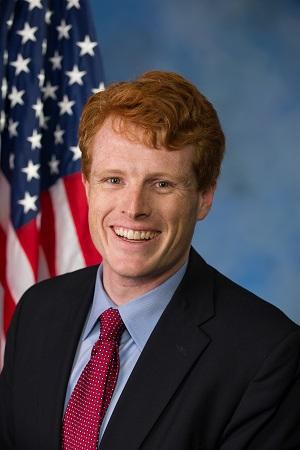The president had endorsed a reform bill, but that didn't matter to Mitch.
A Pennsylvania patient challenges the federal gun ban, an Ohio court has thrown out the state's law requiring racial justice in licensing, and more.
Two California cops go down for faking drug buys that never happened, a former Memphis cop heads to prison for offering to escort a load of drugs, and more.
New Jersey Gov. Phil Murphy (D) is still committed to marijuana legalization, the Albany DA announces an end to low-level pot prosecutions, an Ohio court throws out a racial justice requirement in the state's medical marijuana licensing plan, and more.
There's a changing of the guard at the top of the Senate Judiciary Committee, a Pennsylvania medical marijuana patient sues over gun access, a new report finds fake and counterfeit drugs killing tens of thousands each year in Africa, and more.
New Jersey will finally start moving on a marijuana legalization bill, a leading congressional foe of legalization changes his tune, and more.
People lined up to buy legal marijuana in Massachusetts Tuesday, Connecticut's governor says legalization is a priority for him, Afghan opium production is down, but still at high levels, and more.
New Jersey embraces industrial hemp and moves toward passing a marijuana legalization bill, New York's governor says a legalization bill will likely pass there next year, and more.
Prospects for a major federal sentencing reform bill brightened on Wednesday with President Trump's announcement that he would support the effort, but by week's end, those prospects dimmed as Senate Majority Leader Mitch McConnell (R-KY) told the president he wouldn't bring the bill to a floor vote this year.
[Update: McConnell is facing pressure from the religious right as well as from the president to allow a vote.]

The grinch who stole sentencing reform. (Creative Commons/Gage Skidmore)
The bill is known as the First Step Act. The House passed a version of this spring, but the House version was limited to reforms on the "back end," such as slightly increasing good time credits for federal prisoners and providing higher levels of reentry and rehabilitation services.
The Senate bill crafted by a handful of key senators and pushed hard by presidential son-in-law Jared Kushner incorporates the language of the House bill, but also adds actual sentencing reforms. Under the Senate bill:
- Thousands of prisoners sentenced for crack cocaine offenses before August 2010 (the date of the Fair Sentencing Act, which reduced, but did not eliminate sentencing disparities) would get the chance to petition for a reduced sentence.
- Mandatory minimum sentences for some drug offenses would be lowered.
- Life sentences for drug offenders with three convictions ("three strikes") would be reduced to 25 years.
Even though the bill has been a top priority of Kushner's and had the support of numerous national law enforcement groups and conservative criminal justice groups, as well as the support of key Democrats, such as Sen. Cory Booker (D-NJ) and Sen. Dick Durbin (D-IL), McConnell told Trump at a White House meeting Thursday that there wasn't enough time in the lame-duck session to take it up.
"McConnell said he didn't have the time, that's his way of saying this isn't going to happen," said Michael Collins, interim director of the Drug Policy Alliance's (DPA) Office of National Affairs. "McConnell was a roadblock under Obama and he's a roadblock now. He likes to hide behind the process but I think he just doesn't like or care about this issue."
McConnell's move upset what should have been a done deal, said Collins.
"Once First Step passed the House, some key figures on the Senate side, such as Sens. Durbin and Grassley, said it wouldn't move without sentencing reform, and then Kushner facilitated negotiations between the Senate and the White House and they reached broad agreement this summer," he recounted. "Then the question was can we get this to the floor? McConnell sat down with Grassley and Durbin and said after the elections, and Trump agreed with that. The idea was that if Trump would get on board, McConnell would hold a vote, would whip a vote. He wanted 60 votes; there are 60 votes. Then McConnell said the Senate has a lot to do. At the end of the day, it's up to McConnell. When Trump endorsed people thought it would move McConnell, but he just poured cold water on it."
If McConnell sticks to his guns, then sentencing reform will be dead in this Congress. And as long as Mitch McConnell remains Senate Majority Leader, he is likely to be an impediment to reform.
"McConnell is the obstacle -- it's not Tom Cotton (R-AR) or Jeff Sessions -- it's McConnell, and he's going to be there next year and the year after that," said Collins. "He is the prime obstacle to criminal justice reform, even though a lot of groups on the right are in favor of this. Since he isn't going to listen to us, it's going to be up to them to figure this out."
"If McConnell doesn't prioritize this, it doesn't happen," said Kara Gotsch, director of strategic initiatives for the Sentencing Project, a Washington, DC-based advocacy group. That's a shame, she said, because "I'm optimistic both parties would support this if they got the chance."
There is a possible upside: Failure to pass limited criminal justice reform this year could lead to a bill next year that goes further than limited sentencing reforms.
"It's been a long, hard slog to get to where we are," said Collins, "but now some people are saying this compromise stuff gets us nowhere and we should be doing things like enacting retroactivity for sentencing reforms, eliminating all mandatory minimums for drug offenses, and decriminalizing all drugs."
"My job is to continue to beat the drum for change," said Gotsch. "It's always hard, and we don't get those opportunities a lot. Momentum doesn't come very often, regardless of who is in power, and we can't let these small windows close without doing our best to move the ball forward. This has been my concern for 20 years -- the conditions these prisoners face, the injustice -- and we will keep pushing. The federal prison system is in crisis."
The federal prison population peaked at 219,000 in 2013, driven largely by drug war prosecutions, and has since declined slightly to about 181,000. But that number is still three times the number of federal prisoners behind bars when the war on drugs ratcheted up under Ronald Reagan in the 1980s. There is still lots of work to be done, but perhaps next time, we demand deeper changes.
This article was produced by Drug Reporter, a project of the Independent Media Institute.
The Drug Policy Alliance is a financial supporter of both Drug War Chronicle and Drug Reporter.
back to top
A Pennsylvania patient challenges the federal gun ban, an Ohio court has thrown out the state's law requiring racial justice in licensing, and more.
Indiana
Indiana Poll Finds Strong Support for Medical Marijuana. Even in red-state Indiana, they like their medical marijuana, a new poll finds. The poll from Ball State University finds that 81% of Hoosiers believe marijuana should be legal for medical reasons. The poll had support for full legalization at only 39%.
Kansas
Kansas Governor-Elect Supports Medical Marijuana. Laura Kelly, the Democrat who won a surprise victory in conservative Kansas, is ready to take the state down the path toward legal medical marijuana. "I think that there is some momentum in the legislature to pass, to legalize medical marijuana," she said. "I think we would do it Kansas-style, where it would be well-regulated. With a supporter in the governor's mansion, legislators no longer have to worry about coming up with supermajorities to overcome a gubernatorial veto."
Ohio
Ohio Court Rules Racial Justice Requirement for Grow Licenses Unconstitutional. An Ohio district court has ruled unconstitutional the state's "racial quota" for selecting medical marijuana business licenses. The state's medical marijuana law requires 15% of all licenses to be awarded to businesses owned by racial minorities, and the state awarded two of 12 available licenses to minority-owned firms even though they scored lower than other applicants. One of the applicants who did not get a license sued. The ruling could prompt the state to award a provisional license to the plaintiff in order to make the case go away.
Pennsylvania
Pennsylvania Doctor and Medical Marijuana Patient Sues for Right to Own a Gun. A Philadelphia physician who is also a medical marijuana patient filed a lawsuit in federal court last Thursday challenging a federal law that prevents him from owning a firearm because he uses medical marijuana. Dr. Matthew Roman was blocked from buying a gun earlier this year when he honestly answered a question about marijuana use. Roman's lawsuit claims that the blanket prohibition against marijuana users violates the constitutional rights of tens of thousands of nonviolent, law-abiding American citizens. The filing, in US District Court for the Eastern District of Pennsylvania, claims the law violates both the Second and Fifth Amendments of the Constitution.
Utah
Utah Medical Marijuana Backers Threaten to Sue Over Mormon Church Involvement in Bill to Replace Prop 2. Medical marijuana supporters said last Thursday they are exploring legal action to challenge the legislature's move to replace the voter-approved Prop 2 medical marijuana initiative "at the behest" of the Mormon Church. Even though voters approved Prop 2 this month, lawmakers plan to meet in a December special sessions to replace the measure with a proposal more acceptable to opponents, including the church. "Although initiative statutes may be amended or repealed by the Legislature, the almost immediate extreme undermining of numerous provisions of Proposition 2 at the behest of The Church of Jesus Christ is anti-democratic and contemptuous of the... recognition in the Utah Constitution that the people are to have the power to enact legislative changes," attorney Rocky Anderson, former Salt Lake City mayor, wrote.
[For extensive information about the medical marijuana debate, presented in a neutral format, visit MedicalMarijuana.ProCon.org.]
back to top
Two California cops go down for faking drug buys that never happened, a former Memphis cop heads to prison for offering to escort a load of drugs, and more. Let's get to it:
In Visalia, California,
two Visalia police officers were arrested last Friday for allegedly falsifying police reports about controlled drug buys that never actually occurred. Officer Bryan Ferreira was hit with 38 felonies, while Officer Shane Logan was hit with 22. The pair came under the suspicion of Tulare police this past spring, who reported their suspicions to Visalia brass. The officers have been on leave since May.
In Norfolk, Massachusetts, a state prison guard was arrested Monday on charges he was smuggling opioids into the prison. Guard Steven Frazier, 29, went down after a "cooperating witness" met him in a parking lot and provided him with Suboxone, synthetic cannabinoids, and $2,500 for his efforts. Federal agents arrested him at that meeting. He is charged with one count of conspiracy to possess a controlled substance with intent to distribute.
In Colorado Springs, Colorado, a former El Paso County sheriff's deputy was sentenced last Wednesday to six months in prison for smuggling methamphetamine hidden in food into the jail. Steven D'Agostino was arrested after a woman dropped off a container of KFC for him and investigators found a balloon with 7.5 grams of meth in the mashed potatoes.
In Memphis, Tennessee, a former Memphis police officer was sentenced Monday to 10 years in federal prison after he and a partner were caught up in a sting where they escorted what they thought was a load of drugs in return for $9,000 each. Kevin Coleman had pleaded guilty in August to drug conspiracy and official extortion. A second officer charged in the case, Terrion Bryson, pleaded guilty earlier this month and is awaiting sentencing.
back to top
New Jersey Gov. Phil Murphy (D) is still committed to marijuana legalization, the Albany DA announces an end to low-level pot prosecutions, an Ohio court throws out a racial justice requirement in the state's medical marijuana licensing plan, and more.
Marijuana PolicyNew Jersey Governor Reiterates Support for Legalization. In remarks to the state League of Municipalities Thursday, Gov. Phil Murphy (D) said he remains in favor of marijuana legalization. "I remain equally committed to sensible legislation to legalize adult use of marijuana, and to continue to expand our medical marijuana program, which can also be an important tool for fighting our opioid epidemic…. "Legalization is the right thing to do, for safer communities, for protecting our kids, for erasing the stain that is keeping so many of our fellow New Jerseyans from a better future. Moreover, the overwhelming majority of New Jerseyans agree. We should listen to them. I am ready to work alongside the Legislature, and each of you, to get this done."
Albany NY DA Stops Prosecuting Low-Level Pot Cases. Albany County District Attorney David Soares has announced that as of December 1, his office will no longer prosecute anyone accused of possessing up to two ounces of marijuana. "We've been feeling the need to make this change for quite some time," Soares told reporters. But Soares warned that he would still prosecute low-level charges when someone is smoking in public, in a vehicle, or in front of children.
Vermont Advisory Commission Recommends 26% Marijuana Tax. A subcommittee of the governor's Marijuana Advisory Commission has recommended that if marijuana commerce is legalized, there should be a 20% excise tax on retail sales in addition to the state's 6% sales tax. The subcommittee also recommended earmarking marijuana tax revenues to the state education fund.
Medical Marijuana
Kansas Governor-Elect Supports Medical Marijuana. Laura Kelly, the Democrat who won a surprise victory in conservative Kansas, is ready to take the state down the path toward legal medical marijuana. "I think that there is some momentum in the legislature to pass, to legalize medical marijuana," she said. "I think we would do it Kansas-style, where it would be well-regulated. With a supporter in the governor's mansion, legislators no longer have to worry about coming up with supermajorities to overcome a gubernatorial veto.
Ohio Court Rules Racial Justice Requirement for Grow Licenses Unconstitutional. An Ohio district court has ruled unconstitutional the state's "racial quota" for selecting medical marijuana business licenses. The state's medical marijuana law requires 15% of all licenses to be awarded to businesses owned by racial minorities, and the state awarded two of 12 available licenses to minority-owned firms even though they scored lower than other applicants. One of the applicants who did not get a license sued. The ruling could prompt the state to award a provisional license to the plaintiff in order to make the case go away.
Utah Medical Marijuana Backers Threaten to Sue Over Mormon Church Involvement in Bill to Replace Prop 2. Medical marijuana supporters said Thursday they are exploring legal action to challenge the legislature's move to replace the voter-approved Prop 2 medical marijuana initiative "at the behest" of the Mormon Church. Even though voters approved Prop 2 this month, lawmakers plan to meet in a December special sessions to replace the measure with a proposal more acceptable to opponents, including the church. "Although initiative statutes may be amended or repealed by the Legislature, the almost immediate extreme undermining of numerous provisions of Proposition 2 at the behest of The Church of Jesus Christ is anti-democratic and contemptuous of the... recognition in the Utah Constitution that the people are to have the power to enact legislative changes," attorney Rocky Anderson, former Salt Lake City mayor, wrote.
back to top
There's a changing of the guard at the top of the Senate Judiciary Committee, a Pennsylvania medical marijuana patient sues over gun access, a new report finds fake and counterfeit drugs killing tens of thousands each year in Africa, and more.

Massachusetts will see its first marijuana stores open this week. (Sondra Yruel/Drug Policy Alliance)
Graham to Replace Anti-Marijuana Hardliner Grassley as Head of Senate Judiciary Committee. Sen. Chuck Grassley (R-IA) announced last Friday that he is stepping down as chairman of the Senate Judiciary Committee. He will be replaced by Sen. Lindsey Graham (R-SC), who, while not exactly a friend of marijuana law reform, is not nearly as oppositional as Grassley. While Grassley has stifled marijuana bills during his tenure as chair, Graham has cosponsored bills to protect legal medical marijuana states from federal interference, reschedule marijuana, and remove CBD from the list of banned substances. (Grassley has also been a champion late in his career for enacting at least modest criminal justice and sentencing reform.)
Massachusetts's First Marijuana Stores to Open Tuesday. Slightly more than two years after voters approved marijuana legalization, the state's first retail marijuana outlets are set to open their doors tomorrow. The state Cannabis Control Commission announced last Friday that retail shops in Leicester and Northampton had received final sign-offs to start selling recreational weed.
Medical Marijuana
Indiana Poll Finds Strong Support for Medical Marijuana. Even in red-state Indiana, they like their medical marijuana, a new poll finds. The poll from Ball State University finds that 81% of Hoosiers believe marijuana should be legal for medical reasons. The poll had support for full legalization at only 39%.
Pennsylvania Doctor and Medical Marijuana Patient Sues for Right to Own a Gun. A Philadelphia physician who is also a medical marijuana patient filed a lawsuit in federal court last Thursday challenging a federal law that prevents him from owning a firearm because he uses medical marijuana. Dr. Matthew Roman was blocked from buying a gun earlier this year when he honestly answered a question about marijuana use. Roman's lawsuit claims that the blanket prohibition against marijuana users violates the constitutional rights of tens of thousands of nonviolent, law-abiding American citizens. The filing, in US District Court for the Eastern District of Pennsylvania, claims the law violates both the Second and Fifth Amendments of the Constitution.
Harm Reduction
Opioid Reversal Drug Company Gouged Taxpayers With 600% Price Increase. A new report from the Senate's Permanent Subcommittee on Investigations finds that a pharmaceutical company "exploited the opioid crisis" to gouge taxpayers by increasing the price of its overdose reversal drug by 600% between 2014 and 2017. The report found that the company Kaléo raised the price of its drug EVZIO from $575 in 2014 to $4,100 in 2017. EVZIO is an auto-injector form of the drug naloxone. The price hikes cost taxpayers more than $142 million over the past four years in Medicare and Medicaid charges.
International
Fake and Counterfeit Drugs Are Killing Thousands in Africa, Report Finds. A new European Union-funded report finds that tens of thousands of Africans are dying because of fake and counterfeit drugs. Fake or substandard anti-malarial drugs alone were linked to anywhere between 64,000 and 158,000 deaths each year, the report found. The fake drugs are especially entrancing to the region's poor, who often cannot afford prescribed drugs and turn to the streets to buy cheaper alternatives. "So this is a criminal activity, you can focus on and try to find the source of this. The problem is also the access of the real medicine, the cost to buy them is too high so poor people are just despaired (they despair) to find something, anything that they think could help them," said Ruth Dreifuss, Chair of the Global Commission on Drug Policy.
Mexico Supreme Court Rejects Law Regulating Tr0ops Fighting Drug Cartels. In a 9-2 decision last Thursday, the nation's highest court threw out a new law aimed at regulating the use of the military to fight drug cartels. The law was meant to set out rules of engagement for the armed forces in their fight with organized crime, but human rights groups warned it could clear the way for more military human rights abuses. The court ruled that Congress does not have the power to legislate on "domestic security" and only the executive can dispatch troops. The court ruling came a day after incoming security minister Alfonso Durazo said there was "no way" to withdraw the military from the fight because it is more trustworthy than the police.
back to top
New Jersey will finally start moving on a marijuana legalization bill, a leading congressional foe of legalization changes his tune, and more.

Staunch anti-marijuana Rep. Joe Kennedy III (D-MA) has seen the light. (Twitter)
Leading Anti-Marijuana Congressman Changes His Tune. Rep. Joe Kennedy III (D-MA), a longtime staunchly anti-marijuana politician, has changed his tune. In an editorial in STAT News Tuesday, Kennedy came out for federally descheduling marijuana. "I believe we must implement strong, clear, and fair federal guidelines. To do that requires us to remove marijuana from the Controlled Substances Act (CSA) and legalize it at the federal level," Kennedy wrote, citing benefits to public health and racial justice.
New Jersey Legalization Hearings Set for Next Week. After months of delay, marijuana legalization will finally get rolling in the state legislature. Legislative leaders announced Tuesday that separate Senate and Assembly committees are set to meet together next Monday for a hearing, with a vote expected that day. The bill is S2703. There is not yet complete agreement between legislative leaders and Gov. Phil Murphy (D) on some issues, particularly taxation, but Senate President Stephen Sweeney (D-Gloucester) said he didn't want to wait any longer.
New York Legislator Forecasts Marijuana Legalization Next Year. Empire State legislators will move on marijuana next year said Assemblywoman Crystal Peoples-Stokes (D-Buffalo). She said that a series of public hearings on the issue have made two points: "One, that it really is time for the legalization of adult use and, two, that it also is the time to eliminate the records of these people, many of who are black and brown, that have been criminalized," she said.
International
Greece Issues First Medical Marijuana Licenses. On Monday, Greek authorities issued the first two licenses to private companies to grow medical marijuana in the country. The move comes after the country legalized medical marijuana last year and then lifted a ban on growing and producing it in March of this year. Another 12 licenses will be issued by the end of this year, the Economy and Development Ministry said.
back to top
People lined up to buy legal marijuana in Massachusetts Tuesday, Connecticut's governor says legalization is a priority for him, Afghan opium production is down, but still at high levels, and more.

Afghan opium cultivation is down 20% this year, but is still the second highest figure on record. (UNODC)
Connecticut Governor Says Legalization a Priority. Incoming Gov. Ned Lamont (D) said Monday he intended to make marijuana legalization a priority next year. "We're going to have a legislative session. It's going to be one of the priorities we got," Lamont said. "It's something I would support, and I don't want the black market controlling marijuana distribution in our state. I think that's a lousy way to go. Canada, Massachusetts, others are doing it," he added. "That's going to lead to some enforcement things. In the meantime, we enforce Connecticut laws."
Massachusetts' First Day Legal Pot Sales Draws Crowds. Hundreds of marijuana lovers lined up before dawn Tuesday to be among the first people on the East Coast to be able to legally purchase recreational marijuana. The crowds brought gridlock to Leicester's Main Street as they gathered to buy weed. By noon there was an approximately three-hour wait in the cold, wet weather to get inside.
International
UNODC Says Afghan Opium Production Drops, But Still at High Levels. The UN Office on Drugs and Crime reported Wednesday that opium cultivation in Afghanistan is down 20% this year compared to 2017, but was still the second-highest measure of poppy cultivation since UNODC starting monitoring in 1994. UNODC cited a severe drought and declining opium prices for the decline.
Mexico's President Presents Plan for National Guard to Fight Drug War. President-elect Andres Manuel Lopez Obrador (AMLO) on Tuesday submitted a bill for a new national guard to replace the military in the fight against organized crime. The bill would create a force 50,000 strong drawn from the ranks of the armed forces and police, but critics point out to failed previous reorganizations of the anti-drug apparatus as well as warning the move could further militarize the country's drug war.
back to top
New Jersey embraces industrial hemp and moves toward passing a marijuana legalization bill, New York's governor says a legalization bill will likely pass there next year, and more.

Hemp is coming to New Jersey. (votehemp.org)
New Jersey Legalization Bill Finally Unveiled. Lawmakers on Wednesday unveiled the latest version of a marijuana legalization bill, S2703. The bill would legalize up to an ounce for adults and set up a system of taxed and regulated marijuana production and distribution. The bill sets a 12% tax rate on marijuana sales, which includes the state's 6.625% sales tax, but also would allow localities to seek up to 2% in additional marijuana taxes.
New York Governor Says Recreational Marijuana Bill Will Pass Sometime in 2019. Gov. Andrew Cuomo (D) said Wednesday that he expects his state to legalize marijuana next year, but he offered few details beyond that. "We now have a working group that is putting together a piece of legislation that would do it, because the devil is in the details: How do you do it, where do you do it, what are the ages, etc.? What is New Jersey doing? What has Massachusetts done?" Cuomo said. "So that legislation is being crafted. I expect it to be introduced next year. The when and the how we're not clear."
Medical Marijuana
Utah Medical Cannabis Act Revised Again. A bill aimed at replacing the voter-approved Prop 2 medical marijuana law has now been revised for a third time as legislators prepare to meet in special session to pass it. The newest version removes renter protections for patients, but increases the number of license for "cannabis pharmacies." Under the bill, a central pharmacy would ship marijuana to local health departments for patients to pick up, or patients could use the "cannabis pharmacies."
Industrial Hemp
New Jersey Governor Signs Industrial Hemp Bill. Gov. Phil Murphy (D) has signed into law S3145, which will establish a pilot program for research and cultivation of hemp. The bill had received nearly unanimous support in the legislature. "This pilot program is a win for local farmers who need a diversity of opportunities to compete in the global agriculture market," said state senator Declan O'Scanlon. "Hemp is growing in value as a cash crop, and I am sure the New Jersey economy, and our farmers will benefit from this pilot program."
back to top







